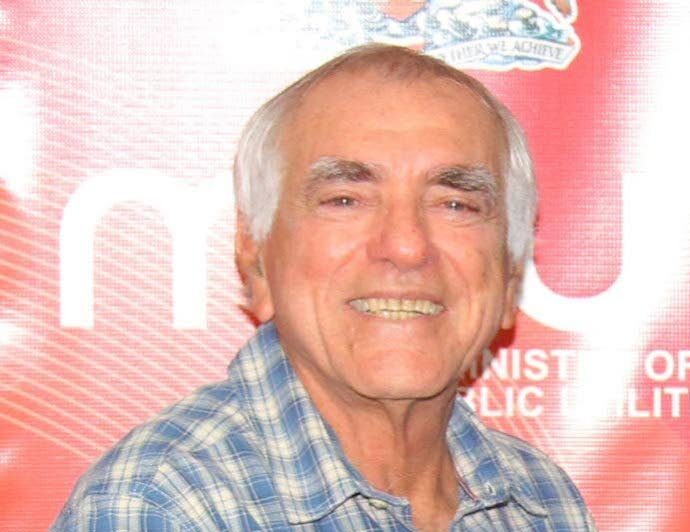In a landmark ruling, the Privy Council has dismissed an appeal by NH International (Caribbean) Ltd, affirming that Gordon Winter Company Ltd is entitled to payment for piling work completed at the Ministry of Education building site in 2006. The dispute, which has spanned over a decade, centered on unpaid work performed by Gordon Winter, a subcontractor hired for the ten-story project. The case highlights the complexities of construction contracts and the legal principles governing payment disputes. The piling work, which proved more challenging than anticipated due to adverse soil conditions, required variations from the original specifications. While Gordon Winter was compensated for some of its work, payments ceased after April 2006, prompting the company to halt operations in June of that year. Gordon Winter sought payment on a contractual quantum meruit basis, arguing that NH International had been unjustly enriched by its work. NH International, however, counterclaimed that Gordon Winter had breached the contract by abandoning the project. The Privy Council, led by Lord Burrows, rejected NH’s arguments, emphasizing that Gordon Winter’s claim for payment was valid under the contract. The ruling upheld the Court of Appeal’s decision, which had reduced NH’s damages for delay to $350,000 and referred Gordon Winter’s claims for additional costs to a master in chambers for assessment. The Privy Council’s decision underscores the importance of honoring contractual obligations and ensuring fair compensation for work performed, even in cases where procedural complexities arise. The judgment also reaffirms the principle that parties cannot be denied payment for work clearly executed under contract, regardless of technical legal arguments.
博客
-
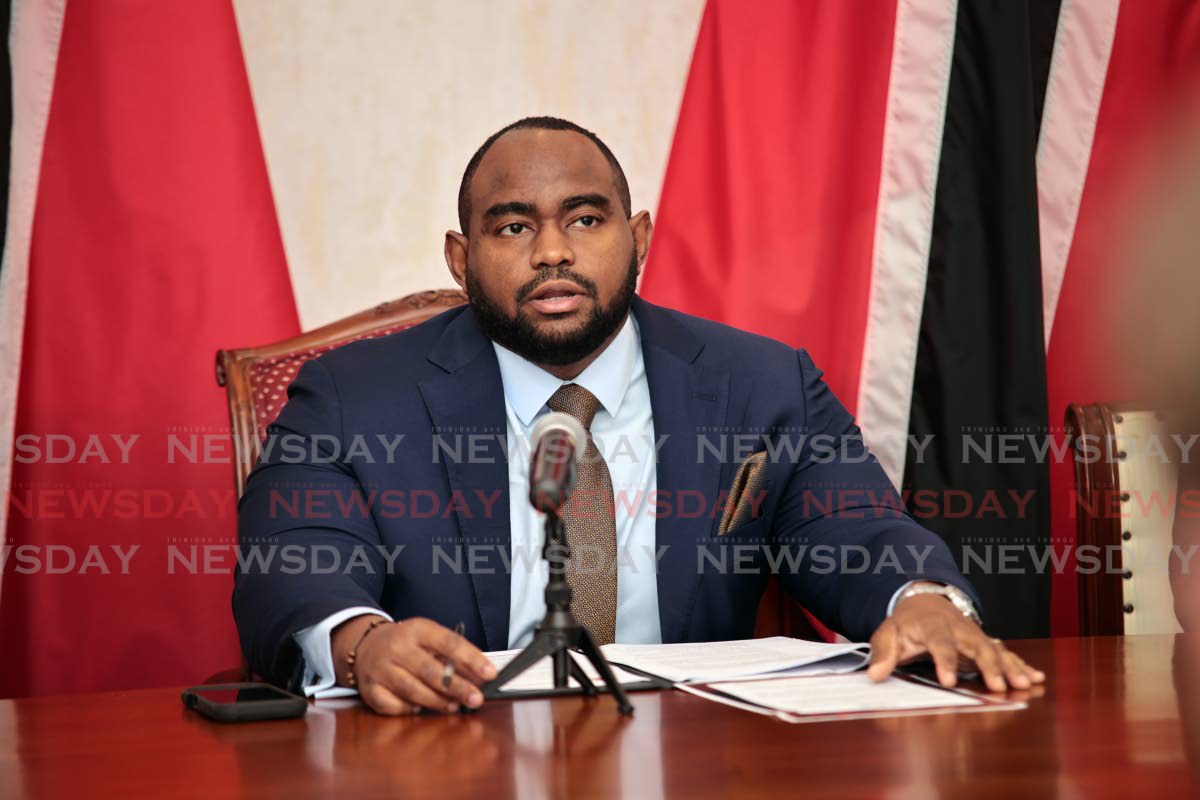
Southcom to lend assistance in providing hurricane relief to Jamaica
In the aftermath of Hurricane Melissa, which struck Jamaica on October 28, the United States Southern Command (Southcom) has emerged as a key player in facilitating relief efforts from Trinidad and Tobago. The devastating storm prompted a swift response, with relief supplies and personnel being mobilized from various sources. During a post-cabinet meeting at the Diplomatic Centre in St Ann’s on October 30, Trinidad and Tobago’s Minister of Foreign Affairs, Sean Sobers, highlighted Southcom’s involvement in the relief operations. Sobers stated, ‘We have liaised with Southcom to assist in transporting personnel and heavy equipment, such as generators and water tanks, to Jamaica.’ This announcement followed the Prime Minister’s oversight of the initial shipment of relief items to the hurricane-ravaged island. Southcom, a branch of the US military tasked with executing President Donald Trump’s anti-narco trafficking initiatives in the region, has been active in the Caribbean. In August, the US deployed three Aegis guided-missile destroyers off Venezuela as part of its efforts to combat drug cartels. The USS Gravely, one of these vessels, recently concluded a five-day visit to Trinidad and Tobago, though its role in the relief efforts remains unclear. The ship reportedly conducted training exercises with the local Defence Force during its stay. Southcom’s presence in the region has led to 14 strikes on alleged drug-smuggling boats, resulting in 61 fatalities.
-

Holy Halloween
During a recent visit to a residential neighborhood, I was struck by the sight of nearly 100 children, accompanied by their parents and siblings, dressed as vampires, ghosts, Frankenstein, and werewolves. They carried pumpkin-shaped containers, moving from house to house collecting sweets. A quarter of the adults also wore costumes, with many items purchased locally or online. This scene, reminiscent of an episode of *Twilight Zone*, highlighted the growing appeal of Halloween, a celebration that has evolved from a niche subculture to a mainstream, almost sacred event. A resident explained that while community efforts to celebrate Divali, Eid, and Christmas had poor turnouts, Halloween’s trick-or-treating had captured the neighborhood’s imagination. When I asked children about local folklore like Papa Bois, they were clueless, with one parent dismissing such tales as “evil.” This experience underscored how Halloween’s joyous celebration has been decades in the making, fueled by a steady diet of horror movies and novels. Films like *Halloween*, *The Exorcist*, and *Twilight* have romanticized horror, while slasher movies have normalized violence. Studies, such as one published in *Media Psychology* in 1999, reveal that such media can cause residual anxiety and even symptoms akin to PTSD. NeuroLaunch’s 2023 article further emphasized the mental health risks, including phobias. The Caribbean, too, faces the impact of this cultural imperialism, with local horror movies mirroring the violence and gore of Hollywood. While some argue that Halloween fosters social interaction and creativity, its normalization of violence and desensitization to real-life horrors raise critical questions. As Halloween’s popularity grows, it may soon find its way into school curricula or even become a public holiday, marking its transformation from a fringe event to a cultural cornerstone.
-
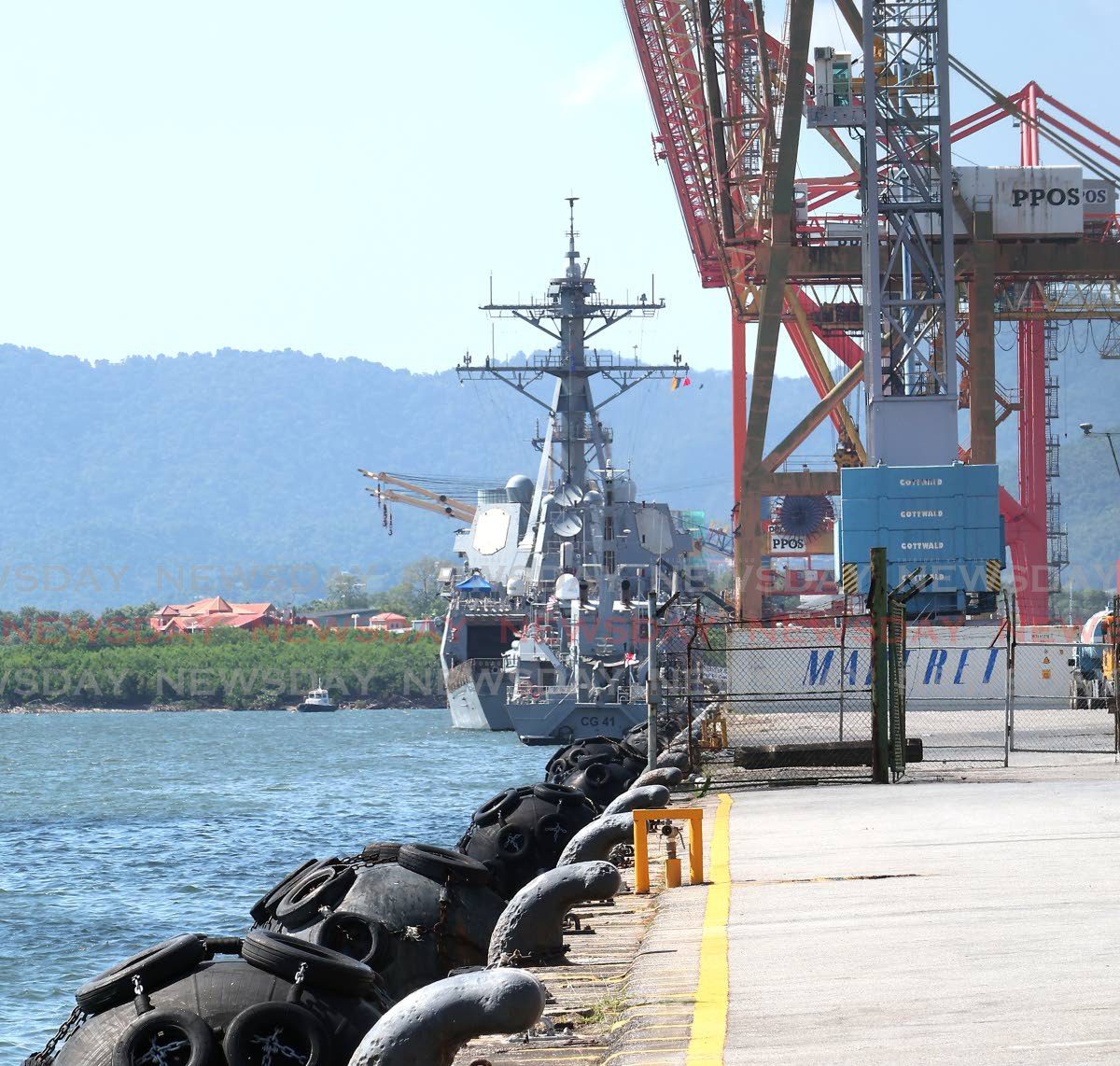
Business sector weighs in on warship arrival, Venezuela fallout
The temporary docking of the USS Gravely, a United States Navy guided-missile destroyer, at the Port of Spain from October 26 to October 30 has caused significant disruptions to commercial operations and reignited discussions about Trinidad and Tobago’s (TT) delicate geopolitical position between the US and Venezuela. The vessel’s presence for joint training exercises with the TT Coast Guard led to the redirection of several cargo ships to the Port of Point Lisas, a move coordinated by the Port Authority of TT, the Port of Spain, and the Point Lisas Industrial Port Development Corporation (Plipdeco). While this mitigated extensive logistical delays, it incurred additional costs and raised concerns among business chambers about future risks. The TT Chamber of Industry and Commerce reported moderate delays in cargo clearance and increased operational costs, urging the government to implement temporary relief measures such as waiving demurrage charges and expediting time-sensitive cargo clearance. The chamber emphasized the need for improved port infrastructure and contingency planning to address vulnerabilities. Meanwhile, the Greater Tunapuna Chamber of Industry and Commerce highlighted logistical challenges and higher transport costs, warning that such disruptions could impact the Christmas season’s economic activity. The situation is further complicated by new fiscal measures set to double customs and clearance fees in January, adding to importers’ burdens. Geopolitical tensions between the US and Venezuela have also escalated, with Venezuela suspending energy agreements with TT and declaring Prime Minister Kamla Persad-Bissessar persona non grata. The Energy Chamber of TT has called for a renewed focus on domestic gas production to ensure energy security, emphasizing the need for reliable gas supplies for petrochemical plants and LNG facilities. The business community has expressed caution, warning that port disruptions, fee increases, and suspended energy deals could weaken investor confidence and challenge TT’s role as a regional energy hub.
-
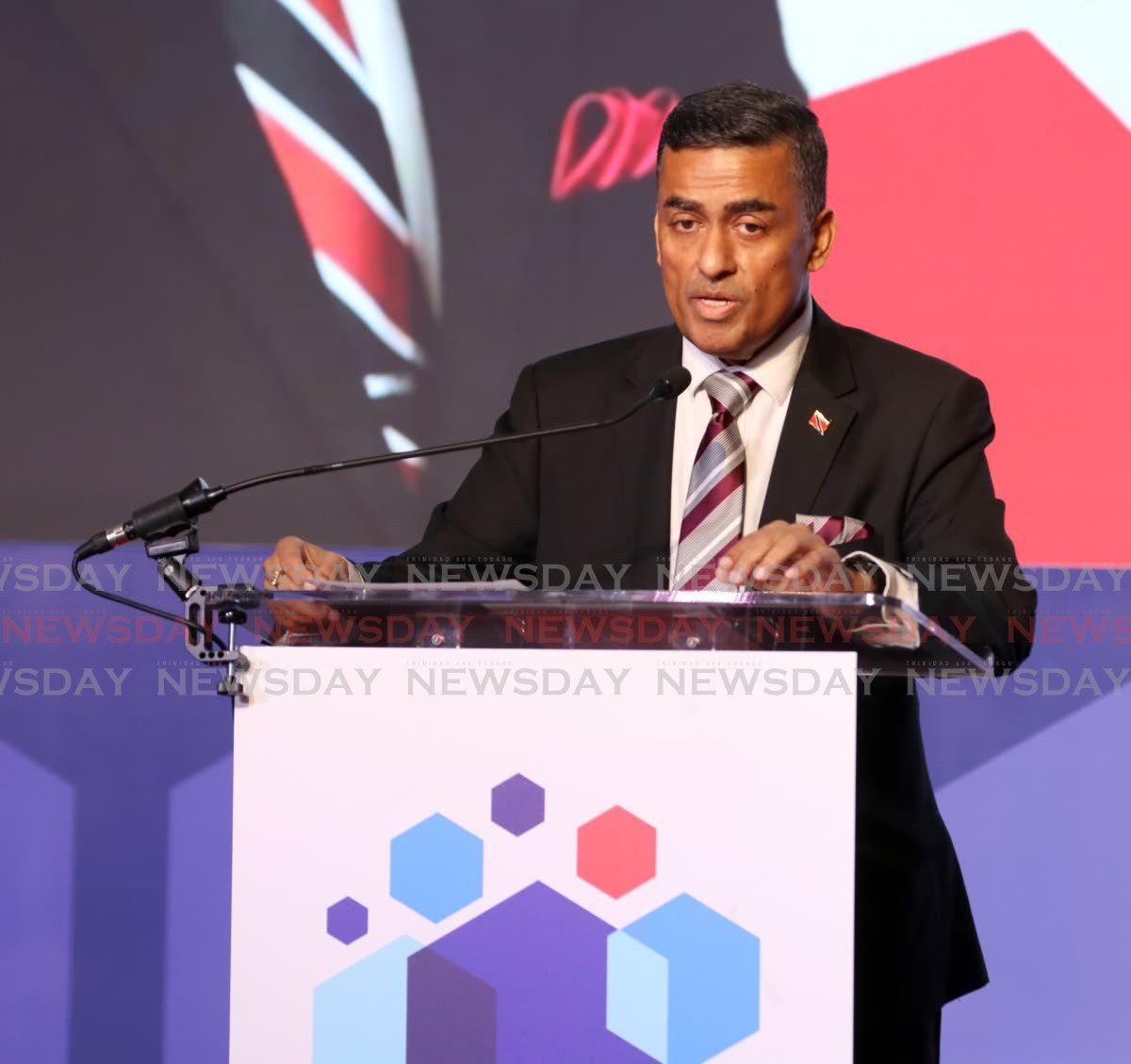
The two faces of government’s NIS policy
In a bid to address the looming crisis facing Trinidad and Tobago’s National Insurance System (NIS), Finance Minister Davendranath Tancoo has unveiled a dual strategy that balances immediate reforms with a broader call for financial independence. Speaking at the TT Stock Exchange Capital Markets Investor Conference in Port of Spain on October 24, Tancoo outlined a phased increase in NIS contributions over two years, followed by a gradual rise in the retirement age over a decade. These measures aim to stabilize the fund, which actuarial forecasts warn could collapse within years due to demographic shifts and financial strain. While the incremental approach seeks to mitigate the impact on workers and employers, concerns linger about potential effects on wages, employment, and inflation. Simultaneously, Tancoo issued a stark warning to citizens, urging them not to rely solely on the NIS for their financial security. ‘What we need is more participation, more people investing, more people saving, more people building wealth,’ he emphasized, signaling a shift away from traditional state-supported safety nets. This dual stance reflects the government’s nuanced approach to safeguarding the NIS while encouraging private financial engagement. However, critics argue that promoting private equity investments contradicts the NIS’s foundational principles of universality, risk-sharing, and income redistribution. With over 600,000 beneficiaries, the NIS remains a cornerstone of the nation’s social safety net. Tancoo’s next steps should focus on expanding coverage to the self-employed, enhancing compliance, and addressing dual coverage, as recommended in the ILO’s 2020 Actuarial Review, to ensure the system’s long-term viability.
-
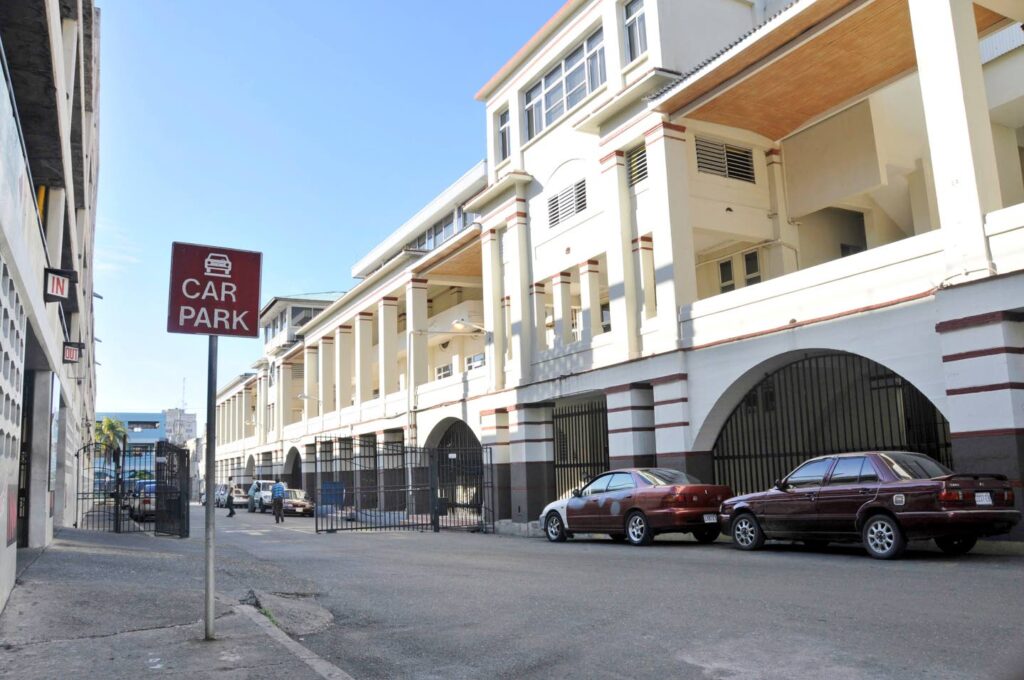
Supreme, appeal and six parish courts resume sittings on Monday
The Jamaican Judiciary has announced the resumption of court operations across multiple jurisdictions starting Monday, November 3, 2025, following the aftermath of Hurricane Melissa. Among the courts reopening are the Court of Appeal, the Supreme Court at Public Building East on King Street in Kingston, and the High Court Division of the Gun Court. Additionally, six parish courts will resume their activities, including specialized courts such as Family, Coroners, Special Coroners, Traffic, and Parish Courts in Kingston and St Andrew. Courts in Manchester, Clarendon, St Thomas, Portland, and St Mary (excluding Richmond) will also reopen. Both criminal and civil cases will proceed as scheduled, with matters postponed during the week of October 27–31 being rescheduled. Affected parties will be notified of new dates, which will also be published on the official social media pages and websites of the Jamaican Judiciary.
-

Colombian president struggles to get paid after US sanctions, says laywer
Colombian President Gustavo Petro is encountering significant challenges in accessing his salary following the imposition of US sanctions, as revealed by his lawyer, Daniel Kovalik, in a statement to AFP on Thursday. The sanctions, enacted by former US President Donald Trump, target Petro, his wife, one of his sons, and the Colombian interior minister, accusing them of insufficient efforts in combating drug trafficking. These measures have resulted in the freezing of their assets in the United States and restrictions on conducting business with US-affiliated entities. Kovalik highlighted the immediate impact, stating that their credit cards and bank accounts have been frozen, making it difficult for them to receive their salaries as public officials. Additionally, a US-linked fuel company denied refueling the presidential plane in Spain. While Petro’s monthly salary remains undisclosed, Kovalik expressed optimism that negotiations or diplomatic channels could resolve the situation. He emphasized the complexity of the legal battle, noting that challenging the sanctions in US courts and before the Treasury Department would be a prolonged process. Kovalik also suggested that international bodies might intervene, though he acknowledged the US’s dominant position in such matters. He defended Petro’s innocence, asserting that the president has consistently opposed drug cartels throughout his political career. Kovalik attributed the sanctions to Petro’s resistance to US foreign policy, interpreting them as a warning to other leaders to align with US interests. He further cautioned that any entity collaborating with Petro could face similar sanctions. Kovalik’s relationship with Petro dates back to the early 2000s, during a tumultuous period in Colombia’s history, when both were vocal critics of the military’s ties to paramilitary groups.
-

Guyana pledges support to Jamaica and Haiti following Hurricane Melissa
In a significant humanitarian gesture, Guyana’s President Irfaan Ali announced on Thursday that the nation will provide extensive assistance to Jamaica and Haiti, both severely impacted by Hurricane Melissa. The storm, described as the most powerful in Jamaica’s recorded history, has caused widespread devastation, including damage to hospitals, power stations, homes, and government buildings. President Ali emphasized that Guyana’s support would be comprehensive, addressing the urgent needs of both countries. He revealed that targeted aid for Guyanese nationals in Jamaica, where the storm inflicted catastrophic damage, has already commenced. ‘I have instructed the Ministry of Foreign Affairs to deliver urgent care packages to all Guyanese students and families, and this has already started,’ Ali stated. The president also highlighted that Prime Minister Mark Phillips is spearheading a national response team, which includes the Civil Defence Commission (CDC), the Guyana Defence Force (GDF), the Ministry of Health, the private sector, and Guyana Power and Light. This team is collaborating with Jamaican authorities to finalize a comprehensive support package, which will include technical assistance on the ground. An initial shipment of essential relief supplies, such as generators, tarpaulins, and chainsaws, is expected to arrive in Jamaica before the weekend. Meanwhile, in Jamaica, Local Government Minister Desmond McKenzie reported a decline in the number of people seeking shelter, as many have returned home. Additionally, 117 soldiers, along with police officers and firefighters, have been deployed to assist with search and rescue operations.
-

WATCH: US disaster relief team arrives in Jamaica after Hurricane Melissa
KINGSTON, Jamaica—In a significant move to bolster recovery efforts following the devastation wrought by Hurricane Melissa, the United States Disaster Assistance Response Team (DART) touched down at Norman Manley International Airport (NMIA) in Kingston on Thursday. The arrival of the team, accompanied by critical relief supplies, marks a pivotal moment in the international aid response to the Caribbean nation’s plight.
-

Additional NCB branches reopen Friday after Melissa
National Commercial Bank Jamaica Limited (NCB) has announced the continued phased reopening of its branches following the disruptions caused by Hurricane Melissa. On Friday, October 31, 2025, four additional branches in Matilda’s Corner, Fairview, Mandeville, and St Ann’s Bay will resume operations. This follows the reopening of other locations on Thursday, October 30. Branches in Kingston and St Andrew will operate from 9 am to 3 pm, while out-of-town branches will open from 9 am to 2 pm. NCB’s Customer Care Centre is also fully operational, providing support to customers. The bank’s ABM network is gradually being restored, with services currently available in parts of Kingston, St Andrew, Manchester, Portland, St Ann, St Catherine, St James, and St Thomas. However, some areas still face power and connectivity issues. Customers are advised to visit the bank’s website (www.jncb.com/abm-status) for real-time updates on ABM availability. Further information on branch reopenings and service restoration will be communicated through NCB’s official channels.
